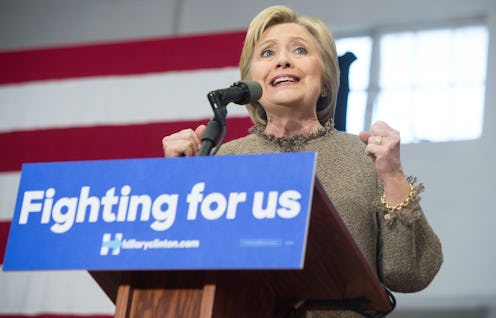News
Super Tuesday Firewalls May Or May Not Exist
It's almost Super Tuesday, the biggest voting day of the 2016 primary. By the time Wednesday arrives, more than 25 percent of the total delegates available will have been won by one candidate or another. To protect against the prospect of a crushing defeat, several candidates have attempted to build "Super Tuesday firewalls." We won't know whether those firewalls actually exist until the voting is finished, but let's back up a second: What is a Super Tuesday firewall?
Contrary to the name, it has nothing to do with network security. Rather, a Super Tuesday firewall when a candidate locks up enough support in a group of Super Tuesday states that they're guaranteed to win the nomination — that is, so long as that support actually comes to the polls on voting day. Until the votes are actually tallied, a candidate's "Super Tuesday firewall" is a purely hypothetical concept, a campaign strategy and nothing more. What's more, the precise makeup of a Super Tuesday firewall — if it comes to fruition — will vary wildly from candidate to candidate.
Let's take a look at two 2016 contenders who've attempted to build firewalls: Hillary Clinton and Ted Cruz.
Clinton and her team always knew that the early voting states, especially New Hampshire, would be tough for Hillary to win. So, her campaign poured resources into delegate-heavy Super Tuesday states months before the primaries even began. Clinton started campaigning in Texas, Georgia, Virginia and elsewhere back in August, even though they wouldn't be voting for more than six months. The idea was to build an early lead in Super Tuesday states to protect against the possibility that she'd lose in one of the early states.
So far, that strategy looks to be working out pretty well. Clinton leads Sanders in Texas, Georgia, Virginia, and more Super Tuesday states, so if the polls hold, she's headed for a big delegate win. Should this happen, it will prove that Clinton's Super Tuesday firewall was indeed strong enough to hand her the nomination — or, at the very least, to prevent Sanders from building momentum by pulling off an upset in one or more states.
On the other hand, we have Cruz, whose attempts to build a Super Tuesday firewall aren't looking nearly as successful. From the very beginning, Cruz courted evangelical voters under the theory that, if he could unite them behind him, he'd have a clear path to the nomination. As such, his Super Tuesday firewall involves winning southern states with high evangelical populations, such as Tennessee and Georgia.
But when Cruz lost badly in South Carolina — one of the most heavily evangelical states in the country — the strength of his firewall was suddenly thrown in to question. As of Friday, Cruz is trailing in Georgia, Tennessee and Alabama, states he needs to win if the firewall is the hold. He can take some solace in the fact that he's leading Texas, although a recent poll showing him tied with Trump might be giving him a bit of a scare.
The takeaway here is this: Just because a campaign says they have a Super Tuesday firewall doesn't mean they actually do. The ones who determine whether a Super Tuesday firewall truly exists aren't candidates or campaigns, but voters.
